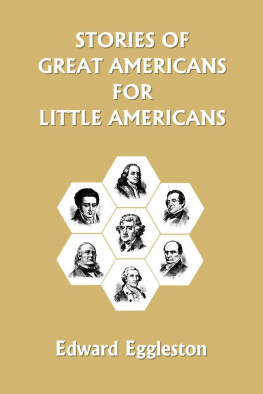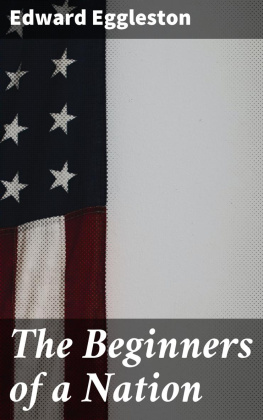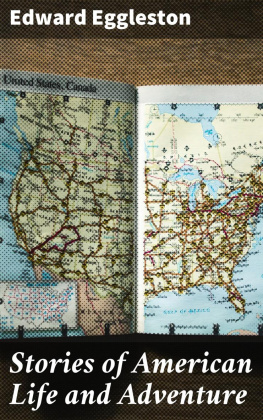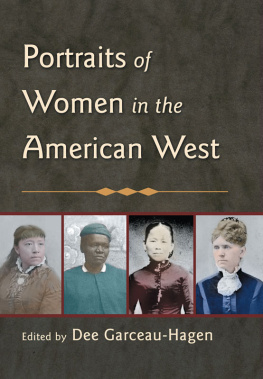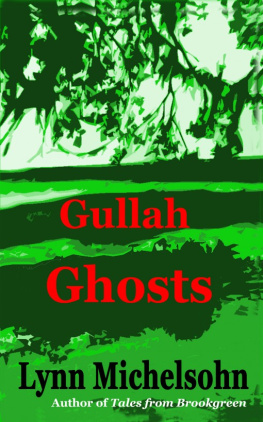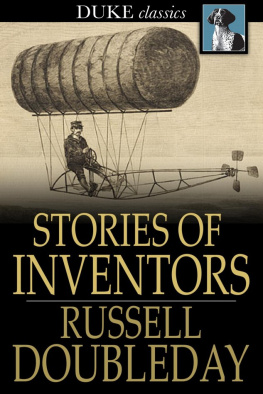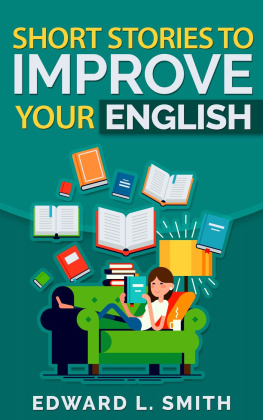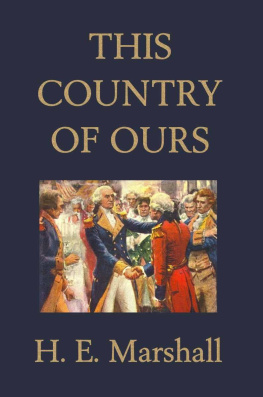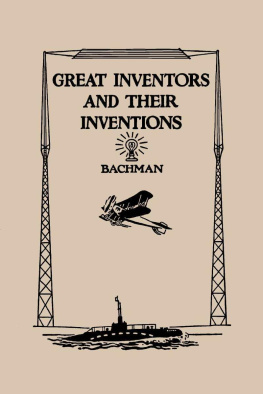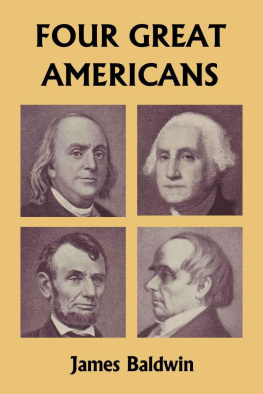Stories of Great Americans for Little Americans
by
Edward Eggleston
Yesterday's Classics
Chapel Hill, North Carolina
Cover and Arrangement 2010 Yesterday's Classics, LLC
All rights reserved. No part of this book may be reproduced or retransmitted in any form or by any means without the written permission of the publisher.
This edition, first published in 2010 by Yesterday's Classics, an imprint of Yesterday's Classics, LLC, is an unabridged republication of the work originally published by American Book Co. in 1895. This title is available in a print edition (ISBN 978-1-59915-084-0).
Yesterday's Classics, LLC
PO Box 3418
Chapel Hill, NC 27515
Yesterday's Classics
Yesterday's Classics republishes classic books for children from the golden age of children's literature, the era from 1880 to 1920. Many of our titles are offered in high-quality paperback editions, with text cast in modern easy-to-read type for today's readers. The illustrations from the original volumes are included except in those few cases where the quality of the original images is too low to make their reproduction feasible. Unless specified otherwise, color illustrations in the original volumes are rendered in black and white in our print editions.
Preface
The primary aim of this book is to furnish the little learner reading matter that will excite his attention and give him pleasure, and thus make lighter the difficult task of learning to read. The ruggedness of this task has often been increased by the use of disconnected sentences, or lessons as dry and uninteresting as finger exercises on the piano. It is a sign of promise that the demand for reading matter of interest to the child has come from teachers. I have endeavored to meet this requirement in the following stories.
As far as possible the words chosen have been such as are not difficult to the little reader, either from their length or their unfamiliarity. The sentences and paragraphs are short. Learning to read is like climbing a steep hill, and it is a great relief to the panting child to find frequent breathing places.
It is one of the purposes of these stories to make the mind of the pupil familiar with some of the leading figures in the history of our country by means of personal anecdote. Some of the stories are those that every American child ought to know, because they have become a kind of national folklore. Such, for example, are "Putnam and the Wolf" and the story of "Franklin's Whistle." I have thought it important to present as great a variety of subjects as possible, so that the pupil may learn something not only of great warriors and patriots, but also of great statesmen. The exploits of discoverers, the triumphs of American inventors, and the achievements of men of letters and men of science, find place in these stories. All the narratives are historical, or at least no stories have been told for true that are deemed fictitious. Every means which the writer's literary experience could suggest has been used to make the stories engaging, in the hope that the interest of the narrative may prove a sufficient spur to exertion on the part of the pupil, and that this little book will make green and pleasant a pathway that has so often been dry and laborious. It will surely serve to excite an early interest in our national history by giving some of the great personages of that history a place among the heroes that impress the susceptible imagination of a child. It is thus that biographical and historical incidents acquire something of the vitality of folk tales.
The illustrations that accompany the text have been planned with special reference to the awakening of the child's attention. To keep the mind alert and at its best is more than half the battle in teaching. The publishers and the author of this little book believe that in laying the foundation of a child's education the best work is none too good.
The larger words have been divided by hyphens when a separation into syllables is likely to help the learner. The use of the hyphen has been regulated entirely with a view to its utility. After a word not too difficult has been made familiar by its repeated occurrence, the hyphens are omitted.
Contents
B EFORE the white people came, there were no houses in this country but the little huts of the Indians. The Indian houses were made of bark, or mats, or skins, spread over poles.
Some people came to one part of the country. Others started settlements in other places. When more people came, some of these settlements grew into towns. The woods were cut down. Farms were planted. Roads were made. But it took many years for the country to fill with people.
The first white people that came to live in the woods where Boston is now, settled there a long time ago. They had a governor over them. He was a good man, and did much for the people. His name was John Winthrop.
The first thing the people had to do was to cut down the trees. After that they could plant corn. But at first they could not raise anything to eat. They had brought flour and oatmeal from England. But they found that it was not enough to last till they could raise corn on their new ground.
Winthrop sent a ship to get more food for them. The ship was gone a long time. The people ate up all their food. They were hungry. They went to the sea-shore, and found clams and mussels. They were glad to get these to eat.
At last they set a day for everybody to fast and pray for food. The governor had a little flour left. Nearly all of this was made into bread, and put into the oven to bake. He did not know when he would get any more.
Soon after this a poor man came along. His flour was all gone. His bread had all been eaten up. His family were hungry. The governor gave the poor man the very last flour that he had in the barrel.
Just then a ship was seen. It sailed up toward Boston. It was loaded with food for all the people.
The time for the fast day came. But there was now plenty of food. The fast day was turned into a thanksgiving day.
One day a man sent a very cross letter to Governor Winthrop. Winthrop sent it back to him. He said, "I cannot keep a letter that might make me angry." Then the man that had written the cross letter wrote to Winthrop, "By conquering yourself, you have conquered me."
Marquette in Iowa
T HE first white men to go into the middle of our country were Frenchmen. The French had settled in Canada. They sent missionaries to preach to the Indians in the West. They also sent traders to buy furs from the Indians.
The Frenchmen heard the Indians talk about a great river in the West. But no Frenchman had ever gone far enough to see the Mississippi.
Marquette was a priest. Joliet was a trader. These two men were sent to find the great river that the Indians talked about.
They traveled in two birch canoes. They took five men to paddle the canoes. They took some smoked meat to eat on the way. They also took some Indian corn. They had trinkets to trade to the Indians. Hatchets, and beads, and bits of cloth were the money they used to pay the Indians for what they wanted.
The friendly Indians in Wisconsin tried to persuade them not to go. They told them that the Indians on the great river would kill them.
The friendly Indians also told them that there was a demon in one part of the river. They said that this demon roared so loud that he could be heard a long way off. They said that the demon would draw the travelers down into the water. Then they told about great monsters that ate up men and their canoes.

